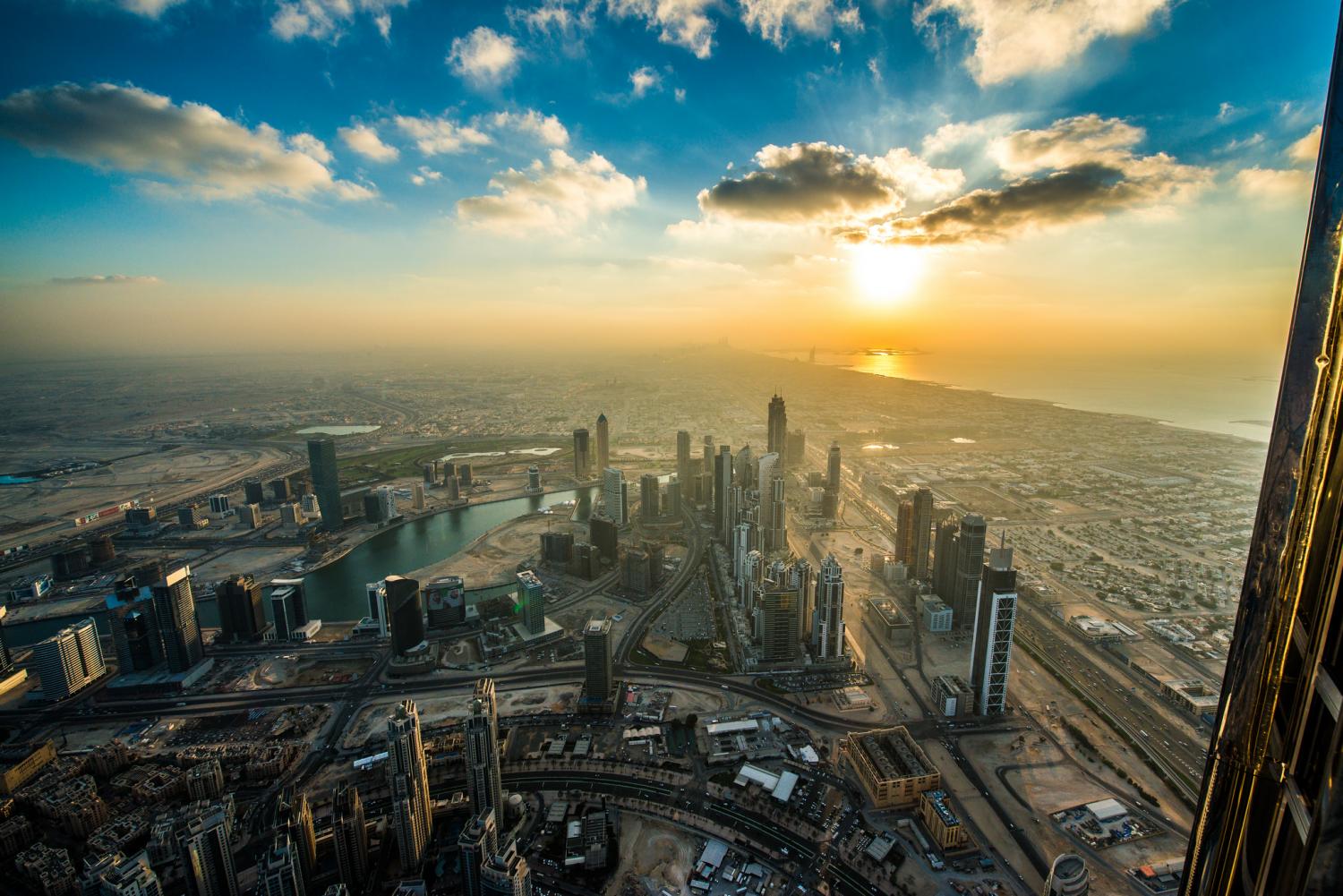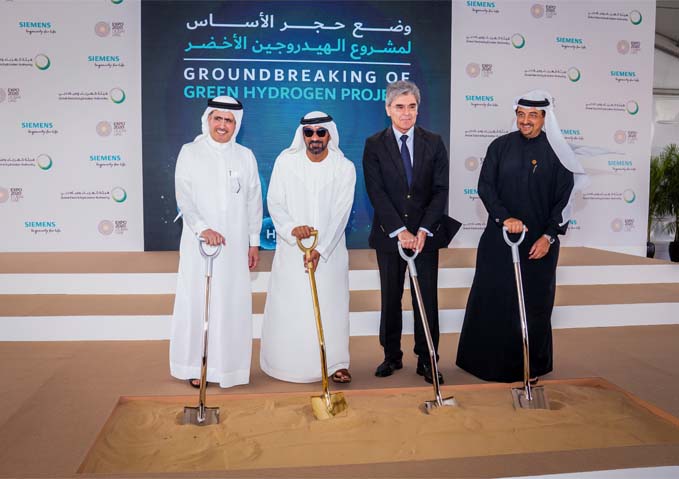
As Expo 2020 approaches, Dubai insists clean technologies such as hydrogen-powered fuel cells are in its future.
The dream of a low carbon economy powered by renewable hydrogen has been slow in coming, but it may reach a tipping point this year. Last month the U.S. launched a major new R&D initiative aimed at prioritizing hydrogen projects for commercialization. And in an even more dramatic move in the Middle East, last weekend the Dubai Electricity and Water Authority broke ground on a megawatt-scale demonstration project at the Mohammed bin Rashid Al Maktoum Solar Park in Dubai.
Interest in renewable hydrogen picks up
Hydrogen fans are known to wax enthusiastically over the advantages of hydrogen as an abundant, zero-emission fuel. However, fans of saving the planet point out that hydrogen is sourced mainly from fossil natural gas.
The good news is that renewable hydrogen is beginning to enter the picture, and the pace is picking up.
In 2016, Toyota launched a demonstration project in Japan, aimed at “splitting” hydrogen gas from water. The process is powered by an electrical current sourced from wind power, and the renewable hydrogen is going to power a fleet of 12 fuel cell fork lifts. So far, the project is hitting its goals, and the next step is a hydrogen fuel cell truck.
For the truck project, Toyota is building on an H2 initiative that launched in 2017 in California. In this project, renewable hydrogen from biogas will go to power fuel cell semi-trucks provided by the company Kenworth.
The U.S. startup Nikola is even more ambitious. The company is marketing its own fuel cell semi-trucks and providing the renewable hydrogen as well. Its business plan includes a national network of fuel stations, many of which will have on site water-splitting systems powered by solar energy.
Nikola launched in 2016 and it has already expanded to include an energy branch focusing on solar. Meanwhile, the company’s truck division got a boost of adrenalin last spring, when AB InBev indicated that it would purchase up to 800 H2-powered semi trucks.
That’s quite a step up from forklifts in just two years.
The U.S. is also dipping into other heavy-duty transportation uses. In California, a fuel cell ferry boat is under construction, and across the Pacific in Hawaii, the U.S. Air Force repurposed a mobile hydrogen compression project to provide fuel for a range of vehicles including a 25-passenger crew bus, a MJ-1E fighter weapons loader and a U-30 heavy aircraft tug along with others. The Air Force project is in support of Hawaii’s 100% renewable and sustainable energy goal.
Oil producing state jumps into the renewable hydrogen field
The new Dubai Electricity and Water Authority (DEWA) project represents another step up in terms of ambition.
DEWA entered into an agreement with Siemens last year to accelerate the development of renewables such as solar and wind power in the region, by building the new demonstration project.
The idea is to demonstrate that hydrogen can be used to store and deploy other forms of clean energy for multiple uses, not just automotive fuel cells.
DEWA explains:
“The facility aims at testing and showcasing an integrated MW-scale plant to produce hydrogen using renewable energy from solar photovoltaic at the Mohammed bin Rashid Al Maktoum Solar Park, store the gas, and then deploy for either re-electrification, transportation or other industrial uses.”
The pressure is on to get the facility up and running in short order. DEWA intends to showcase the facility, along with fuel cell vehicles, at Expo 2020 in Dubai.

So far everything appears to be on track. In a statement released for last weekend’s groundbreaking, DEWA Managing Director and CEO Saeed Mohammed Al Tayer emphasized the central role envisioned for renewable hydrogen in the regional economy:
"This pioneering project is a role model for strategic partnerships between the public and private sectors. It will contribute to developing the green economy concept in the UAE and explore the potential of green hydrogen technology. The hydrogen produced at the facility will be stored and deployed for re-electrification, transportation and other uses.”
The transportation angle is especially interesting in terms of regional needs. Battery electric vehicles are beginning to go mainstream, but DEWA and Siemens are anticipating that hydrogen fuel cell electric vehicles will be better able to withstand high temperatures in Dubai and the rest of the United Arab Emirates.
Game on for renewable hydrogen
The European Union is another hot spot for renewable hydrogen's potential.
Just last fall, 25 EU nations endorsed a memorandum of understanding for a renewed burst of hydrogen development.
As with the DEWA project, the aim is to ramp up hydrogen R&D in multiple areas including energy storage, transport, power and heating.
The EU already has a running start on the competition in all three areas. In one recent development, Italy launched a demonstration project involving a fleet of three fuel cell buses.
An initiative to bring fuel cell trains to the EU is also beginning to bear fruit, though it’s unclear how the Brexit debacle will impact fuel cell adoption in the United Kingdom.

Tina writes frequently for TriplePundit and other websites, with a focus on military, government and corporate sustainability, clean tech research and emerging energy technologies. She is a former Deputy Director of Public Affairs of the New York City Department of Environmental Protection, and author of books and articles on recycling and other conservation themes.














